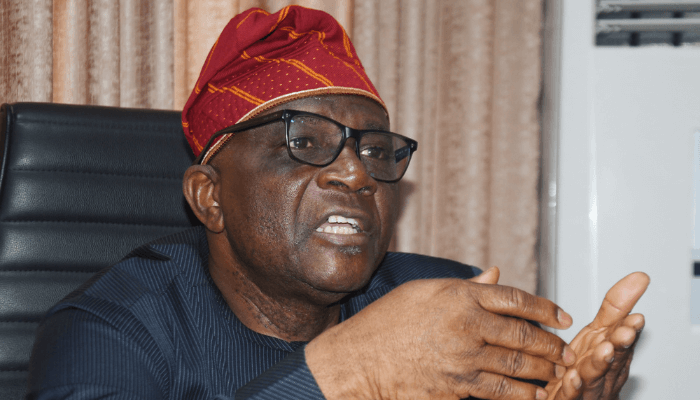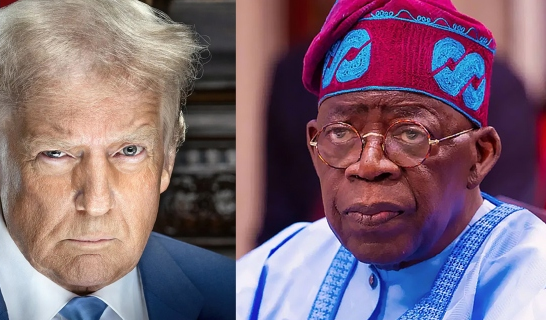The recent escalation in rhetoric from the United States toward Nigeria, including the redesignation of Nigeria as a “country of particular concern” on matters of religious freedom and public threats of military action unless Abuja halts the killing of Christians, demands cool, rigorous analysis rather than reflexive triumphalism or alarmist panic.
The questions this moment poses are about how modern states, media and political movements construct the moral narratives that can justify pressure, sanctions or force and what those narratives do to fragile plural societies in Africa and beyond.
Start with the core claim motivating the U.S. posture: that Christians in Nigeria are being systematically targeted and that the Nigerian state is either unwilling or unable to stop that slaughter.
There is credible evidence of escalating violence in large parts of the country, from Boko Haram and Islamic State affiliates in the northeast to communal clashes and criminal violence across the Middle Belt, and international monitors and local groups have documented high casualty figures and the destruction of churches and communities.
But the pattern of violence is complex, geographically variegated, and affects both Christians and Muslims: conflation of criminality, pastoralist-farmer disputes, banditry, and jihadi insurgency into a single, neat narrative of inter-religious extermination risks misreading, and therefore misdirecting policy toward, the problem.
That complexity is precisely why outside intervention premised on a single moral framing is dangerous. History offers a stern cautionary lesson. The lead-up to the 2003 invasion of Iraq was propelled, in part, by an authoritative-sounding narrative about weapons of mass destruction that later inquiry found to be based on flawed intelligence and instrumentalised political messaging.

The Chilcot Inquiry and other investigations concluded that serious intelligence failures and selective presentation of information helped to manufacture public consent for war with catastrophic consequences.
To insist, therefore, that moral outrage alone is sufficient justification for kinetic intervention in another sovereign state without clear, independently verifiable evidence and international consensus invites the same sort of error: the weaponisation of human-rights rhetoric to secure geopolitical ends.
When a major outside power advances a singular narrative of victimhood that conveniently supports interventionist policy, observers are entitled to interrogate the provenance and politics of that narrative.
There are domestic political dynamics, in both the U.S. and Nigeria, that complicate the public conversation and make it more combustible. In the United States, considerations of electoral politics, the influence of evangelical constituencies, and partisan posturing can all shape the tone and content of statements by public figures.
In Nigeria, decades of weak institutions, contested local power, and economic strain create environments in which victims of violence, or those seeking escape, have powerful incentives to make asylum claims abroad; some asylum applications may be fully justified, others may be opportunistic.
The international rise in Nigerian asylum claims in recent years has fed narratives abroad about persecution that can be amplified by diasporic politics and selective media coverage.
That feedback loop, between real humanitarian suffering and political uses of that suffering, can harden perceptions in host countries and in capitals such as Washington, sometimes in ways that simplify or caricature a far more complicated reality.
The rhetorical embrace of possible military action and public jubilation by a minority who see foreign force as a remedy for Nigeria’s wounds expose additional pathologies. Some express, openly or tacitly, what can best be described as a form of collective self-hatred or sectarian schadenfreude: a desire for external correction of domestic failings that neglects the sovereign dignity of the nation or the likely collateral harm to civilians.
Intertwined with that are strains of subtle Islamophobia: when the entire spectrum of Nigerian Muslims or northern communities are painted with the brush of extremism, policy proposals that treat regions of Nigeria as monolithic threat vectors risk hardening religious distinctions and feeding cycles of reprisal.
The praise of foreign intervention by elements within the country, however understandable as an expression of despair, should not be conflated with a considered strategic prescription.
It is, rather, the dangerous echo of a polity that feels abandoned and Nigeria’s leadership has rejected the claim that the state tolerates genocide with President Bola Tinubu and other officials have pushing back vigorously against blanket accusations.

If Washington acts precipitously or if its posture is built more on political theatre than on multilateral strategy and verifiable intelligence, the consequences would be profound and multi-layered.
- Short-term, there is the immediate risk of deadly blowback: Nigerian civilians, of all faiths, would likely bear the heaviest burdens of any kinetic campaign, whether through misdirected strikes, the expansion of insurgent recruitment, or the collapse of fragile local governance in affected areas.
- Medium- and long-term, the diplomatic aftermath could be poisonous: relations with other African states would sour, skepticism toward Western motives would deepen, and pan-African solidarity might coalesce around narratives of neo-imperial interference.
Economically, a suspension of aid and cooperation could harm development projects, health programmes, and humanitarian relief that millions rely upon and victims would be those least able to cope. Finally, precedent matters: unilateral threats against a sovereign African state on grounds that remain contested internationally lower the bar for similar interventions elsewhere and further erode norms against external coercion.
That does not mean the international community should look the other way. States and regional organisations share an obligation to protect civilians and to assist Nigeria in restoring security, accountability and the rule of law. The correct and responsible responses are, however, methodical: transparent investigations, corroborated reporting by independent monitors, targeted sanctions against named individuals credibly linked to abuses, support for Nigeria’s capacity to secure and administer vulnerable territories, and a calibrated humanitarian response for displaced people and communities. Multilateral action under the auspices of bodies such as the African Union and the United Nations, and with buy-in from Nigeria’s neighbours will be more legitimate and less likely to produce damaging unintended consequences than any unilateral military gesture.
Finally, we must be honest about the political weaponry of moral language. Appeals to moral outrage are legitimate and often necessary; they mobilise assistance and highlight suffering. But when such appeals are deployed selectively, rhetorically inflated, or recycled from past patterns of propaganda that rationalised wars in the Middle East, they corrode trust.
The remedy is sceptical moralism: a posture that combines moral clarity about suffering with scrupulous attention to evidence, respect for sovereignty, and a preference for cooperative, institution-based remedies over dramatic displays of force. The stakes are too high for Nigerians of every faith and for African regional stability to accept anything less.
In the present moment, policy-makers in Washington should downshift the saber-rattling and increase the hard, unglamorous work of verification, diplomacy and assistance. Nigerian leaders must do the same: acknowledge failings where they exist, pursue accountable security reforms, and protect all citizens without equivocation.
Civil society, faith leaders and regional partners should amplify independent investigation and humanitarian care rather than simplistic narratives of victimhood and villainy. The danger is not only of war abroad but of further social fracture at home: when external actors and internal actors trade the currency of moral absolutism, ordinary Nigerians, Christian, Muslim and otherwise, will pay the price.
The world must respond to suffering with precision, not propaganda; with coalition-building, not unilateral theatrics; and, above all, with a disciplined commitment to limit harm to those caught between political ambitions and the grim arithmetic of violence.












